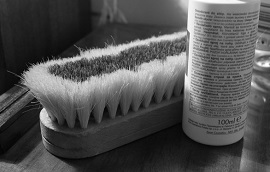If you have a central HVAC system, the ductwork in your home is a vital component. Without these ducts, your filtered and conditioned air would not be distributed throughout your home to all the living areas. Unfortunately, ductwork is not just a simple airflow passage between the rooms and your furnace and AC unit. The design of your ductwork can have a tremendous impact on the balance of cooling and heating, efficiency and system lifespan. If your ducts are leaking, obstructed or damaged in any way, it is likely to have a significant impact on your energy efficiency and home comfort.
The Importance of Efficient Duct Design:
Although the general principles of ductwork may appear simple, an effective and efficient design needs to consider several different factors. For example, the technicians need to consider how the ducts will be laid out and sized. This needs to be considered to sufficient air can reach the areas which are furthest from the central air handler. Failure to consider the layout, length, and size of cross sections could result in the warmed air only blowing out of vents near the air handler.
The installing technicians also need to calculate the amount of both the outgoing and returning air. This needs to be an equal amount to prevent the home being pressurized or depressurized.
When assessing your home, the HVAC professionals will need to determine which type of ductwork design is best suited to your home. In new properties, this layout is usually finalized when the home is built, but during a renovation, the design may be optimized to boost energy efficiency and performance.
Once you have the correct design, this doesn’t mean that you can forget about your ducts. Like any type of system, the ducts can become damaged or degrade over its lifespan. Seals and joints can loosen, and system vibrations can cause ducts to be dislodged over time. Even if you have a high quality system, your ducts will still need regular care and maintenance to allow you to get the best performance and efficiency.
Some cleaning and maintenance tasks need to be left strictly to the professionals, but there are some basic chores that can be completed by the homeowner. These include checking that vents are unobstructed by furniture, dust or debris, and keeping vents open in the rooms. Many homeowners are tempted to close vents in some rooms to try to reduce their heating costs. This may seem like a good idea, but closing vents can cause a pressure drop which places a strain on the motor.
Professional Attention:
To maintain your ducts, it is a good idea to have your system regularly checked. A professional HVAC specialist can check for air leaks in the system and ensure that they are properly sealed. The average home loses up to 30% of conditioned air due to duct leaks, so you can immediately improve your energy efficiency and prevent dust or debris from compromising your indoor air.
Your HVAC professional may also recommend installing a UV light in the ductwork to destroy bacteria. UV can sterilize the air to help prevent fungus and mold colonies developing inside the ducts.

